 Web Scraper
VS
Web Scraper
VS
 Grabbly
Grabbly
Web Scraper
Web Scraper provides robust solutions for automated data extraction suitable for both regular and professional applications. Users can configure data scraping tasks through an intuitive point-and-click interface directly within their browser using the free Chrome or Firefox extension, eliminating the need for coding.
The platform handles complex websites, including those with dynamic content, JavaScript execution, and multi-level navigation. For larger-scale or scheduled operations, the Web Scraper Cloud service offers features like automated scheduling (hourly, daily, weekly), IP rotation via proxies, data parsing, and API access. Data can be exported in CSV, XLSX, and JSON formats, with integrations available for Dropbox, Google Sheets, and Amazon S3 to streamline workflows.
Grabbly
Grabbly is designed to simplify the web scraping process by allowing users to gather data from any website with just one click. Leveraging advanced artificial intelligence, the tool auto-detects key data points on web pages, even handling complex websites with dynamic content, pagination, and scrolling. The Chrome extension ensures a fast, intuitive experience without needing technical expertise or bulky installations.
Grabbly supports both local and cloud-based operations, offering features such as scheduled scraping, email notifications for page changes, deep web extraction, and rotating IPs for secure access. Users can export their results conveniently to CSV, Excel, or Google Sheets. With flexible pricing plans, Grabbly caters to individual and business data scraping needs across various industries.
Pricing
Web Scraper Pricing
Web Scraper offers Freemium pricing with plans starting from $50 per month .
Grabbly Pricing
Grabbly offers Freemium pricing with plans starting from $9 per month .
Features
Web Scraper
- Point-and-Click Interface: Configure scrapers visually without coding.
- Dynamic Website Handling: Extracts data from sites using JavaScript and AJAX.
- Cloud Automation: Schedule and run scraping jobs in the cloud.
- Multiple Export Formats: Export data as CSV, XLSX, and JSON.
- API & Webhooks: Manage scrapers and access data programmatically (Cloud plans).
- Proxy Rotation: Use thousands of IP addresses for scraping tasks (Cloud plans).
- Data Integration: Connect with Dropbox, Google Sheets, and Amazon S3 (Cloud plans).
- Sitemap Customization: Adapt data extraction to various site structures.
Grabbly
- AI Data Detection: Automatically identifies and extracts key data points from web pages.
- One-Click Operation: Scrape any website with a single button press, no technical expertise required.
- Chrome Extension: Lightweight extension for seamless integration into the browser.
- Schedule & Monitor: Set recurring data extraction tasks and receive email notifications upon changes.
- Cloud and Local Scraping: Run scraping jobs on your local machine or in the cloud for flexibility.
- Deep Web Extraction: Follows links to extract additional data from deeper website levels.
- Rotating IPs: Avoid blocks by using dynamic IP addresses for each scrape.
- Multiple Export Formats: Export scraped data to CSV, Excel, or Google Spreadsheets.
- API Integration: Access and automate scrapes through available APIs and webhooks.
- Secure Data Transfer: All data transmissions are protected via HTTPS.
Use Cases
Web Scraper Use Cases
- Automating market research data collection.
- Extracting product details and prices for e-commerce analysis.
- Gathering leads from online directories.
- Monitoring competitor websites.
- Collecting data for academic research.
- Aggregating news or content from multiple sources.
Grabbly Use Cases
- Extract retail and e-commerce product information such as prices, reviews, and availability.
- Gather recruitment and talent acquisition data from job portals and career sites.
- Generate leads by scraping contact details and company information from professional directories.
- Set up monitoring for changes on competitor websites and receive instant notifications.
- Aggregate and analyze market trends using data from various online sources.
- Automate regular web data collection processes without manual intervention.
- Download structured data for academic or business research needs.
FAQs
Web Scraper FAQs
-
What is a URL Credit?
A URL credit represents a single page loaded by the Web Scraper Cloud. For example, if the scraper has to go through 100 pages, 100 URL credits will be charged. Extracting 100 records from a single page uses only one credit. -
Do I need to input my credit card information to start the free trial?
No. -
How does the Scale plan differ from other plans?
The Scale plan is built for large volume scraping. It offers unlimited URL credits with a scalable number of parallel running scraping jobs. -
Can I upgrade or downgrade my subscription plan?
Yes, you can upgrade your plan anytime. Downgrades can be scheduled and take effect at the start of the next billing cycle. -
Will I be able to scrape a specific site?
No universal web scraping tool can scrape every site. It's recommended to try it out using the free trial or free extension.
Grabbly FAQs
-
What types of websites can Grabbly scrape?
Grabbly can extract data from virtually any website, including sites with dynamic content, pagination, and deep web structures. -
Do I need programming experience to use Grabbly?
No programming experience is required; Grabbly is designed for users of all technical backgrounds with its intuitive one-click interface. -
Which export formats does Grabbly support?
Results can be exported in CSV, Excel, and Google Sheets formats for maximum flexibility. -
Can I schedule data scraping tasks?
Yes, Grabbly supports scheduling and recurring scraping tasks, along with email change notifications. -
Is my data secure during the scraping process?
All data transfers are conducted over HTTPS, ensuring secure and protected extraction.
Uptime Monitor
Uptime Monitor
Average Uptime
100%
Average Response Time
113 ms
Last 30 Days
Uptime Monitor
Average Uptime
100%
Average Response Time
216.28 ms
Last 30 Days
Web Scraper
Grabbly
More Comparisons:
-
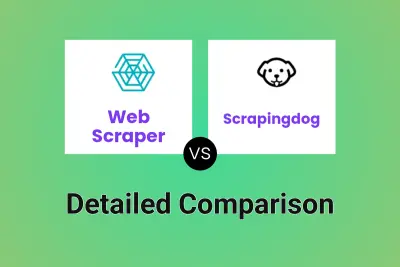
Web Scraper vs Scrapingdog Detailed comparison features, price
ComparisonView details → -
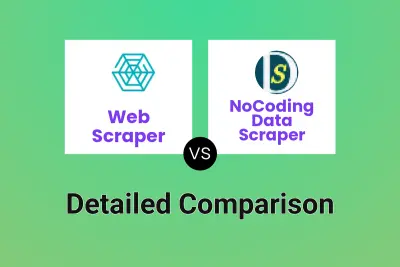
Web Scraper vs NoCoding Data Scraper Detailed comparison features, price
ComparisonView details → -
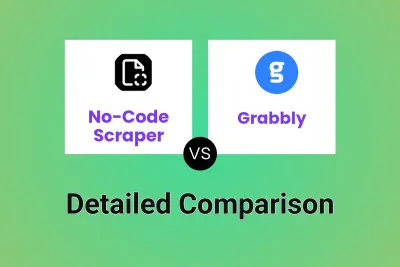
No-Code Scraper vs Grabbly Detailed comparison features, price
ComparisonView details → -
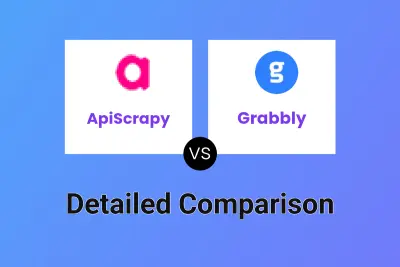
ApiScrapy vs Grabbly Detailed comparison features, price
ComparisonView details → -
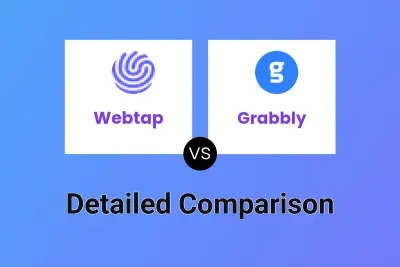
Webtap vs Grabbly Detailed comparison features, price
ComparisonView details → -
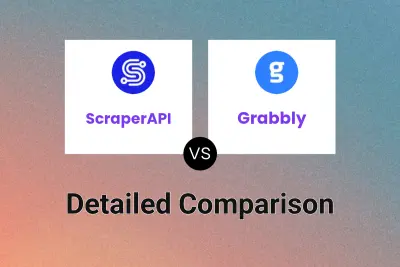
ScraperAPI vs Grabbly Detailed comparison features, price
ComparisonView details → -
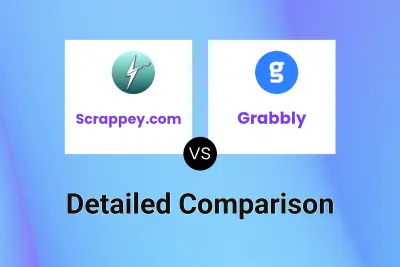
Scrappey.com vs Grabbly Detailed comparison features, price
ComparisonView details → -
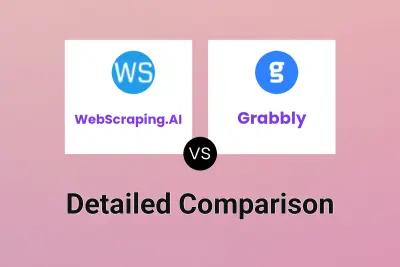
WebScraping.AI vs Grabbly Detailed comparison features, price
ComparisonView details →
Didn't find tool you were looking for?